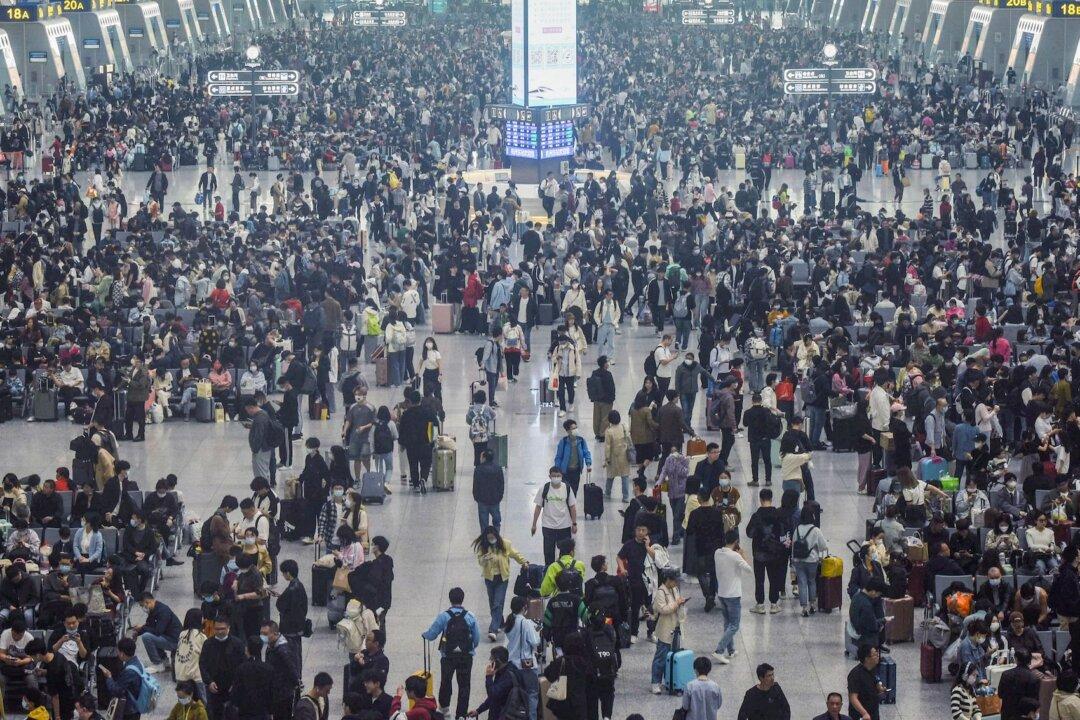Chinese state-run media highlighted the surge in tourism activity during the “Golden Week” of the communist regime’s “National Day” holiday, showcasing the recovery of consumer spending power in China.
Nonetheless, economists believe that the Chinese Communist Party (CCP) is misleading the public, emphasizing that the tourism sector’s impact on revitalizing overall domestic demand and reviving the sluggish Chinese economy is minimal.




